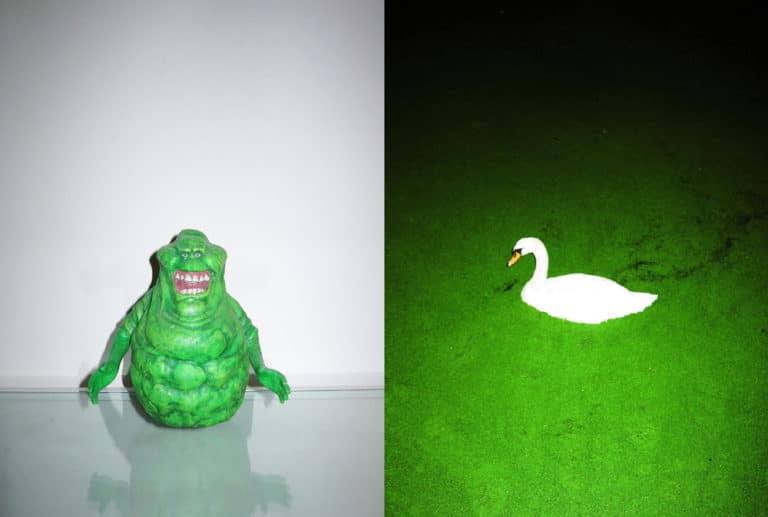Why are we living in an age of conspiracy theories?

Less than a week after the University of Cambridge published the results of a five-year study which found that 60 percent of British people believe in conspiracy theories, a fresh scandal called #VicarGate was unfolding online. On a recent episode of the BBC’s current affairs programme Newsnight, a ‘vicar’ called Lynn Hayter can be seen declaring strong support for Brexit and Theresa May. Not long after the episode was aired it emerged that Hayter also worked as an actress under a different name, even appearing as an extra in Star Wars: The Force Awakens. Naturally, it didn’t take long for theories to start circulating that this mysterious vicar wasn’t actually a vicar at all but was in fact being paid to come on the show and publicly defend May and her Brexit deal. Of course, the BBC denied all of this.
The BBC is hardly known for its impartiality so maybe Hayter was paid to be there, or maybe the acting work is legitimately just something she does on the side. Regardless, it’s still another example of the deep omnipresence of conspiracy theories in everyday life, albeit a more feasible example than what typically comes to mind. On the more extreme end of things exists a world of paranoia: from chemtrails used as evidence that chemicals are being pumped into the air to artificially engineer the environment or control population growth via biochemical warfare, to the earth being flat and the belief that 9/11 was a false flag attack orchestrated by Bush to garner public support for the invasion of Iraq. Ranging from straight-up ridiculous to genuinely plausible, conspiracy theories are everywhere and assume many different forms; however, what links all of them together is that they seem to largely exist as an online phenomenon fuelled by social media.
One explanation as to why social media has become the battleground for conspiracy theories can be understood as a response to the distrust and anxieties that come alongside living within capitalism. A defining feature of the current socio-political system is that the inequalities born out of it have resulted in a deeply-cemented hostility and lack of trust between ‘the people’ and ‘the Establishment’—with mainstream media seen as the status quo’s conniving mouth-piece. It’s for this reason that people turn to social media and fringe media platforms (InfoWars as an example) to inform their view of the world and the fires of conspiracy theories are stoked. Part of the internet’s appeal is its romantic promise of free, unbound discussion and interaction with like-minded people from all corners of the world. And, in the case of conspiracy theories, this allows for the rapid, far-reaching spread of alternative narratives and misinformation, free from the control of those ‘higher forces’ which so often assume the role of the Machiavellian villain within these theories.
To truly understand how and why conspiracy theories have become so prominent in the current conjuncture we must look at them as an inevitable logic of the digital age. In his recent book, New Dark Age, writer and visual artist James Bridle makes the case that the computation and networking of everyday life have created the space for these conspiracy theories to thrive as a way for us to try and make sense of the confusing and overstimulating world around us. As he puts it himself, “Paranoia in an age of network excess produces a feedback loop: the failure to comprehend a complex world leads to the demand for more and more information, which only further clouds our understanding.” For example, it may be far easier to think of a small secretive elite sat at a table controlling the world like evil ventriloquists—a common and often anti-Semitic trope in conspiracy theory circles—than to try and grasp the complexity and pervasiveness of global capitalism, which is a tangled mess of the varying geopolitical interests of nation states and the huge lobbying power of key industries; from arms and energy, to pharmaceutical and finance.
Where the danger truly lies in all of this is when these insecurities are capitalised on by conspiracy theorists peddling misinformation with a political agenda, whether it’s a red-faced Alex Jones frothing at the mouth calling Sandy Hook a hoax and survivors “crisis actors”, resulting in grieving parents being harassed, or Donald Trump tweeting that global warming is a conspiracy created by the Chinese to wage war on American trade, which acted as a precursor to his slashing of environmental protections.
It’s easy to point fun at some of the ridiculous theories out there but all too often we see their effects genuinely lived out around us. Navigating this often-overbearing, information-driven society we live in and trying to find truth in it is an increasingly difficult task but, while scepticism and being autonomous in our search for knowledge is perfectly healthy, we must be wary of letting contemporary thought be hijacked by those with divisive, polarising agendas.




